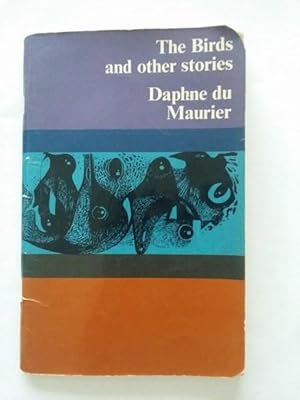

“The Birds” also draws heavily from wartime imagery, suggesting both the personal horror of battle and broader disillusionment with authorities’ ability to maintain order in the face of violent chaos.

This is suggested in “The Birds” through du Maurier’s references to an “east wind” as well as the Triggs’ positing that Russia is somehow behind both the sudden cold snap and the bird attacks. The specter of Hiroshima and further nuclear proliferation hung heavy over Western democracies, where Cold War paranoia had already begun to take root. The United States and the Soviet Union, meanwhile, emerged as the new leading world superpowers. Though victorious, Britain was saddled with debt following the war and saw a sharp decline in its status on the world stage. She died in Cornwall at the age of 81.ĭu Maurier wrote “The Birds” in the wake of World War II, a time of great upheaval for the British Empire. In 1969, she was named a Dame of the British Empire in recognition of her artistic contributions. In addition to her many novels and short stories, Du Maurier wrote three plays and several works of nonfiction, including a biography of her father. In 1940 Rebecca was adapted into an Oscar-winning film by Alfred Hitchcock, who also adapted du Maurier’s novel Jamaica Inn and “The Birds.” Her short story Don’t Look Now was brought to the screen by director Nicolas Roeg in what is considered a classic and influential work of British horror.


The novel was an immediate bestseller, going on to win the 1938 National Book Award and cementing du Maurier’s status as a master of gothic romance and horror. At age 31 du Maurier published her most famous work, the psychological thriller Rebecca. Officially titled Lady Browning after her marriage, du Maurier continued to write under her maiden name. The couple had three children and spent much of their life together in the town of Cornwall, the rugged, coastal setting for many of du Maurier’s works. The book attracted the attention of British Airborne officer Lieutenant-General Frederick Browning, whom du Maurier married in 1932. Du Maurier published her first novel, The Loving Spirit, in 1931. Her family encouraged her artistic ambitions from an early age, as her father introduced her to various theater actors and her great uncle, a journalist and editor, published her early writing in Bystander magazine. Daphne du Maurier was born in London, England to actors Sir Gerald du Maurier and Muriel Beaumont.


 0 kommentar(er)
0 kommentar(er)
